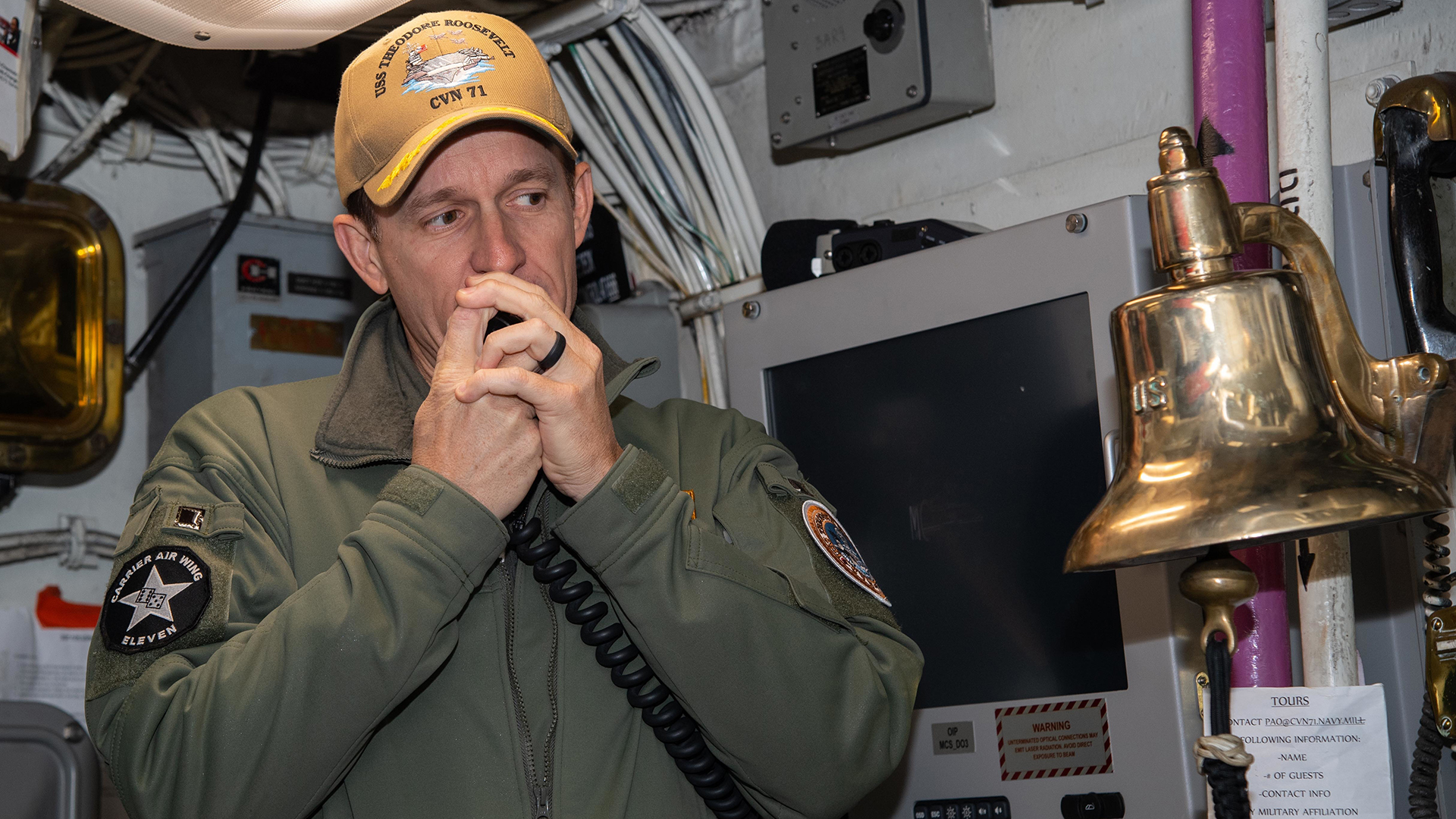

When Acting Navy Secretary Thomas Modly announced last year that he had fired Capt. Brett Crozier from his command of the aircraft carrier USS Theodore Roosevelt, it was painfully clear that only one side of the story was getting out – the Navy’s.
That is why Task & Purpose filed a Freedom of Act Lawsuit in April to force the Navy to release emails to and from Crozier’s email address around the time of the unprecedented novel coronavirus (COVID-19) outbreak aboard his ship that proved the Navy had been totally unprepared to contain the disease aboard warships at the time.
“Immediately after Crozier was fired, I knew there was so much more going on in the background that we were not hearing, and FOIA was likely to be the only way we’d get that information,” said Task & Purpose Editor in Chief Paul Szoldra. “So I filed a request for all Crozier’s emails. I wanted to understand what he was being told and what he was telling others, and that would definitely come out in the email traffic.”
As a result of that lawsuit, the Navy has released more than 1,200 pages of emails over the past year. Between September and February, Task & Purpose received redacted copies of the communications in five separate batches.
Those emails provide a much different narrative of the events leading up to Crozier’s firing than the official Navy version. Rather than causing a panic aboard his ship, as Modly initially claimed, sailors on the Theodore Roosevelt and elsewhere understood and appreciated that Crozier had put his career at risk to get help from a Navy bureaucracy that clearly did not understand it was not moving quickly enough.
The information in these emails allowed Task & Purpose to give readers more context about the chaotic situation aboard the Theodore Roosevelt; how Crozier struggled to persuade his superiors that the Navy’s strategy to contain the virus was not working; and how Crozier enjoyed wide support from his crew and other commanders after he was fired.
None of these stories would have been possible without the work of attorneys Mark Zaid and Bradley Moss, who represented Task & Purpose pro bono after the Navy refused to release the emails in a timely manner.
Moss said he was not surprised that the lawsuit was successful in getting the Navy to provide the requested emails.
“This wasn’t an issue where we were worried about there being classified information implicated by it or where there were ongoing criminal probes,” Moss said. “This was somewhat of a routine type of FOIA lawsuit. It got – by in large – what we expected to find – and it was, thankfully, rather helpful and illuminating.”
Szoldra said it became apparent that Task & Purpose needed to sue the Navy after the service initially denied his request for expedited processing, which is commonly granted to reporters.
Even though Szoldra is an editor of a military news website, the Navy determined he was not considered “a person primarily engaged in disseminating information to the public” and the information he had requested was not “urgent to inform the public about an actual or alleged federal government activity.”
“These email records are unclassified and were made in the course of regular government activity,” Szoldra said. “So they are America’s records, and Americans have a legal right to them under the Freedom of Information Act.”
The Navy declined to provide a comment for this story.
As this case shows, the Freedom of Information Act and open records laws are essential to making sure the American public hears all sides of a story. While the military prohibits troops from actively participating in hate groups, Navy Times reporter Geoff Ziezulewicz revealed through a Freedom of Information Act request that the Navy has no idea how many sailors have been kicked out of the service for extremist activity because it simply doesn’t track those violations.
But it can take years to actually get information by submitting a Freedom of Information Act request because the bureaucracy is so entrenched. Government agencies have also broadly interpreted an exception that allows them to withhold draft documents to include records that are not favorable to a particular agency.
While Modly has written a commentary and been interviewed on the U.S. Naval Institute’s podcast, Crozier has remained silent since being relieved of command.
“The concept of FOIA [Freedom of Information Act] and a lot of the state-level open records laws really give the public a better understanding of truly what government officials – whether elected or appointed or bureaucrats – are doing in their names,” Moss said. “It provides some window – some opening and understanding – of what’s actually truly going on behind the scenes – other than what you’re told about through, say, a press briefing or a press release or official government documents.”
In the case of Capt. Crozier, the emails provided by the Navy in response to Task & Purpose’s lawsuit show that what senior leaders were saying publicly didn’t match with what was happening outside of the public’s view, he said.
“I think that’s a vital part of transparency and a vital part of why things like FOIA exist,” Moss said.
Not getting the Pentagon Run-Down? Sign up here!
Featured image: Capt. Brett Crozier addresses the crew of the aircraft carrier USS Theodore Roosevelt on Jan. 17, 2020. (U.S. Navy photo by Mass Communication Specialist Seaman Alexander Williams)